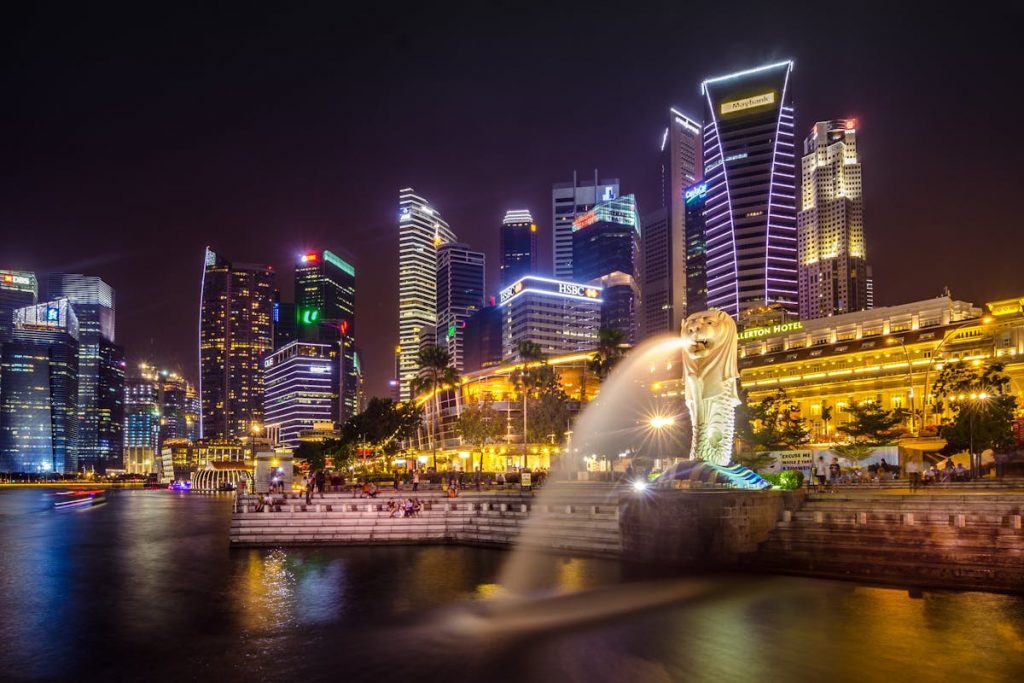- Singapore excels in urban mobility with advanced public transit systems and sustainable solutions.
- SMRT Corporation, led by its chairman and CEO, ensures the country’s public transportation reliability.
- Sustainable initiatives include electrification and smart traffic management, reducing carbon footprint.
- Emerging technologies like autonomous vehicles and Mobility-as-a-Service optimize transportation options.
- Infrastructure resilience and climate change mitigation strategies ensure the sustainability of Singapore’s urban mobility.
Urban mobility is one of the most pressing challenges modern cities face worldwide. As urban populations burgeon, the need for efficient, sustainable, and innovative transportation solutions becomes paramount. Among the global leaders in tackling this challenge is Singapore, a city-state renowned for its forward-thinking urban planning and cutting-edge technology integration. This article delves into Singapore’s pioneering initiatives and innovations in urban mobility, exploring how it has emerged as a trailblazer in this critical domain.
Integrated Public Transportation System
Singapore’s Integrated Public Transportation System stands as a testament to the city-state’s commitment to seamless mobility for its citizens and residents.

Evolution of Public Transportation
The evolution of Singapore’s public transportation system reflects a continuous effort to meet the growing demands of its populace. From the inception of its Mass Rapid Transit (MRT) system in the 1980s to the extensive bus network and the incorporation of emerging technologies such as autonomous vehicles, Singapore’s transportation infrastructure has undergone significant transformations.
The Role of SMRT Corporation
Central to Singapore’s public transportation network is the SMRT Corporation, which is under the leadership of the SMRT Chairman, Seah Moon Ming. They operate the majority of the MRT lines and play a pivotal role in ensuring the reliability and efficiency of the system with the help of Ngien Hoon Ping, the company’s CEO. Through constant innovation and strategic partnerships, SMRT Corporation has contributed to the evolution of Singapore’s urban mobility landscape.
Sustainable Transport Solutions
Singapore is at the forefront of implementing sustainable transport solutions, recognizing the importance of reducing carbon emissions and mitigating the environmental impact of urban transportation.
Electrification and Green Initiatives
Singapore has focused on electrifying public transportation fleets and implementing green initiatives. From electric buses to cycling and walking paths, the city-state is actively promoting eco-friendly modes of transportation to reduce its carbon footprint.
Smart Traffic Management
In addition to embracing electrification, Singapore leverages smart traffic management systems to optimize traffic flow and minimize congestion. Advanced technologies such as predictive analytics and real-time monitoring enable authorities to make data-driven decisions, enhancing the overall efficiency of the transportation network.
Embracing Emerging Technologies
Singapore’s commitment to innovation extends to embracing emerging technologies that have the potential to revolutionize urban mobility.

Autonomous Vehicles
The integration of autonomous vehicles (AVs) into Singapore’s transportation ecosystem represents a significant step towards safer, more efficient mobility. Through pilot projects and testbeds, Singapore is exploring the feasibility and scalability of AVs, paving the way for a future where self-driving cars complement existing public transit options.
Mobility-as-a-Service (MaaS)
Singapore is also pioneering the concept of Mobility-as-a-Service (MaaS), which seeks to integrate various modes of transportation into a single, user-centric platform. By leveraging digital platforms and data analytics, MaaS aims to provide commuters with seamless access to multiple transport options, streamlining their travel experience and reducing reliance on private vehicles.
Infrastructure Resilience and Adaptability
Singapore’s urban mobility initiatives also focus on building resilient and adaptable infrastructure to withstand future challenges and disruptions.
Climate Change Mitigation Strategies
Given the increasing threat of climate change, Singapore is implementing robust strategies to mitigate its impact on urban transportation infrastructure. This includes elevating critical infrastructure to protect against rising sea levels and investing in flood management systems to ensure the continued functionality of transportation networks during extreme weather events.
Future-Proofing Technological Integration
As technology continues to evolve at a rapid pace, Singapore remains vigilant in future-proofing its transportation infrastructure. This involves investing in flexible and scalable solutions that can seamlessly integrate with emerging technologies, ensuring that Singapore remains at the forefront of urban mobility innovation.
Singapore’s journey towards pioneering initiatives and innovations in urban mobility serves as a blueprint for cities worldwide grappling with similar challenges. From its Integrated Public Transportation System to sustainable transport solutions, the embrace of emerging technologies, and infrastructure resilience, Singapore continues to lead by example in shaping the future of urban mobility. As the city-state navigates the evolving landscape of transportation, collaboration between government agencies, private stakeholders, and the community will be crucial in realizing a vision of efficient, sustainable, and inclusive mobility for all. By leveraging innovation, sustainability, and adaptability, Singapore is poised to remain a global leader in urban mobility for years to come.

